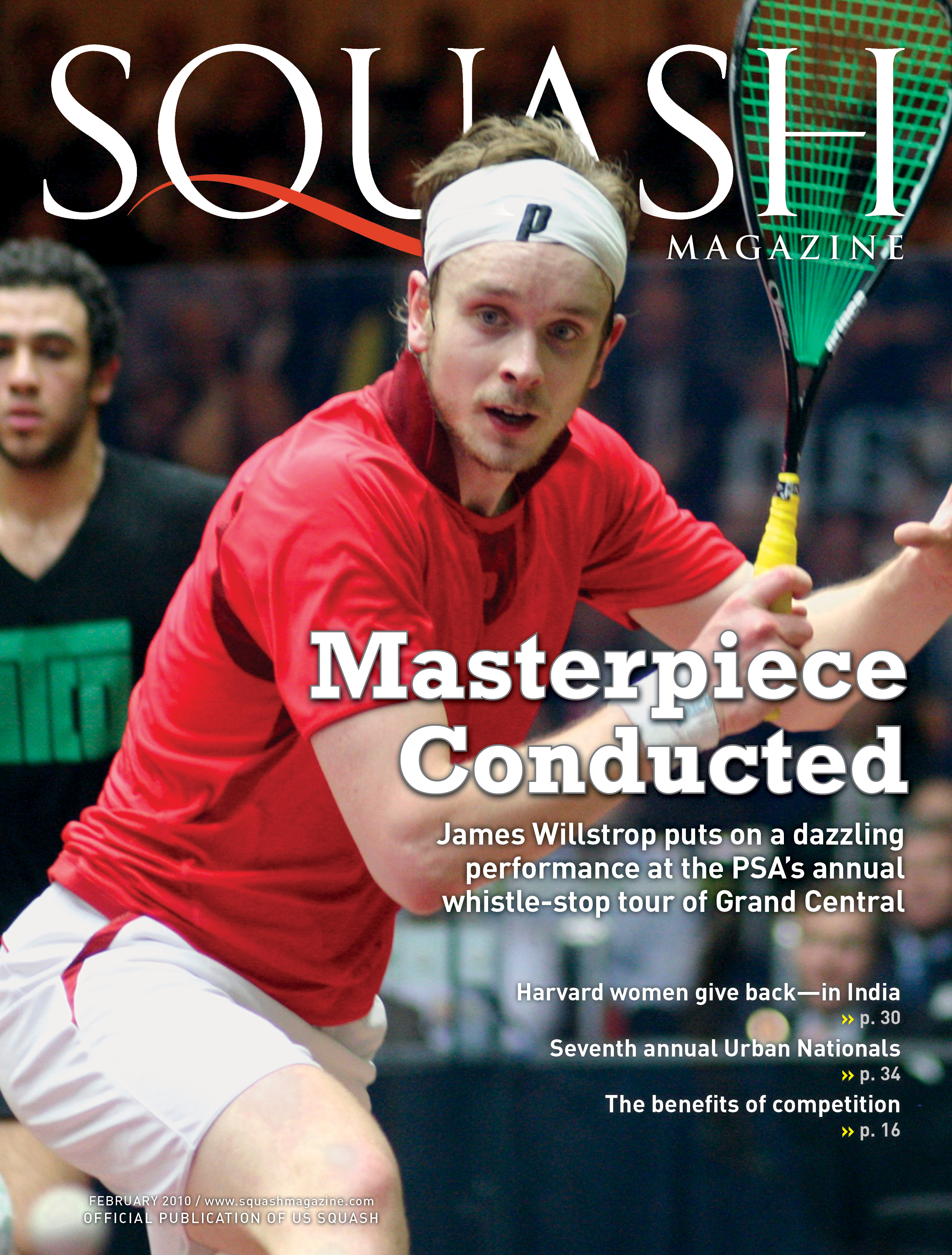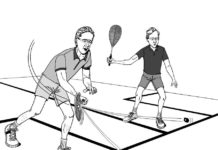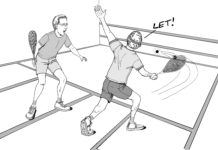By Jay D. Prince
Being a referee is a thankless job, something I’m sure just about all of us can relate to. If you’ve refereed just one match in your playing days, I’m sure you can relate to that statement. No matter how hard we try, making decisions on lets and strokes or on whether a ball was up or down can be a frustrating experience since one of the players on court likely disagrees.
Now imagine the fortitude it must take for those who actually seek out the opportunity to referee matches. While I don’t know exactly how many “world rated” referees there are, I’m quite confident that the number is fewer than 20. In the United States, we have just one, and that is Mike Riley who is featured this month on the Squash Professionals Affiliate program DropShot. Yes, Riley is also a teaching professional.
Another such referee in North American is Rod Symington, our erstwhile columnist who has been contributing his knowledge of the rules in Squash Magazine for the past 13 years. Of the 113 editions of the magazine we have produced, Symington has written 108 columns. But after scratching his head for topics to write about for so long, Symington has put his pen to rest. You will notice in this issue that we do not have a rules page for the first time since 1999.
I first contacted Symington about writing articles for our Rules page before we produced our first issue. He gladly accepted my invitation but refused to be paid—ever. Though I’m sure that had we had a budget for it, he’d have gladly taken something.
Symington wrote articles on the finer points of the rules, including turning, blocking, scoring, misconduct, and even “fouling the court” (i.e., the unfortunate penalty of throwing up on court).
Clearing, and what that actually means, was a topic on numerous occasions. As was the issue of whether it’s truly a let when a player asks while the ball is clearly out of reach. And Symington has explained that it is no longer relevant that a player “shaped to play a shot” but then opted to play the shot differently.
Over the years, you’ve undoubtedly become accustomed to Symington saying that the only way he could truly help clarify a scenario was to “show him the video.” But the reality has been that Symington has done a remarkable job of simplifying the subtleties of the rules and how to apply them.
Trying to teach someone to play squash through written words is next to impossible. But even more difficult is succinctly painting a scenario and then simplifying the process of reaching a decision for readers.
Symington’s approach to the rules is simple—fair outcomes should be the driving force behind every decision. When a player hits a loose ball down the left wall that his/her opponent is prepared to return, the stroke that is awarded is a fair outcome, regardless of how the outgoing striker feels about it. The gist of that approach is that the player should have hit a better shot.
I’m going to miss sending Symington my monthly emails looking for yet another 700 words on a subject that many would consider to be mundane. His passion for the game is unsurpassed. How could it not be? To plunk his butt down in the referee’s chair for as long as he has says it all. And to have written over 70,000 words on the subject? It’s exhausting just thinking about it.
Symington has spent the better part of the last four years traveling around the world, much of it spent in Thailand, giving rules clinics and refereeing at tournaments. He is a professor emeritus of Germanic Studies at the University of Victoria, and he will continue to further the development of referees around the world.
Rest assured that we will bring more rules columns to you in the future, as we are in the process of securing another well-qualified wordsmith.
In the meantime, we wish Rod Symington the best in his future endeavors, and he will always have a platform in Squash Magazine should he need to scratch his writing itch in the future.





